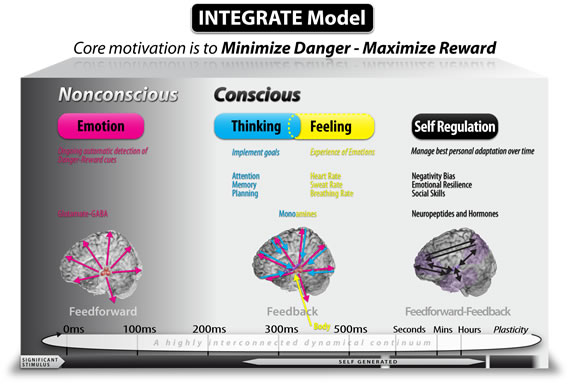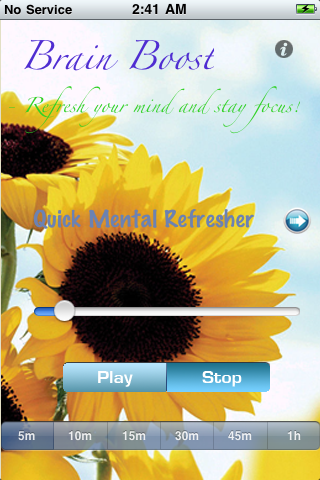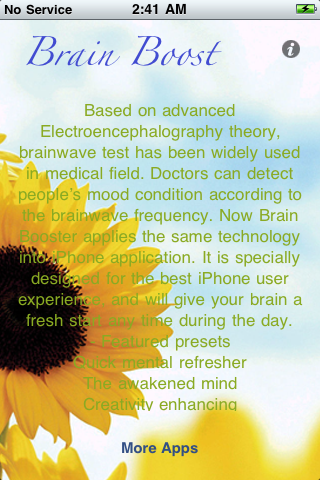Use Tech to Manage Your 12,000 Daily Thoughts
 According to a widely quoted National Science Foundation Study, on average we have 12,000 thoughts per day. And it can run as many as 60,000 thoughts per day. I have been unable to locate the original study. No matter, we have all experienced the constant self talk and flow of ideas that make up everyday experience.
According to a widely quoted National Science Foundation Study, on average we have 12,000 thoughts per day. And it can run as many as 60,000 thoughts per day. I have been unable to locate the original study. No matter, we have all experienced the constant self talk and flow of ideas that make up everyday experience.
How do we mange so many ideas? Are there ways to manage our idea flow that will improve cognitive performance in decision making, self-regulation and creative problem solving?
Well known techniques for managing daily idea flow include journaling, keeping a notepad by your bed and other methods of trying to write them down. There is value in that but it is very low tech. Powerful but simple tools like Evernote, give us a way of quickly capturing our idea flow electronically (phone or computer) and relating it to other on-line documents and information.
The very act of documenting our idea flow slows it down and changes it. We may lose important notions. Fortunately, voice recognition technology has advanced to the point where we can reliably capture our thought by speaking to our phone or computer. Check out the Dragon line of naturally speaking products from Nuance. They have dictation and voice recognition products for every need including the iPhone dictation app shown below.
But will using technology to smoothly capture our thought flows improve our cognitive performance?
There is some evidence it does. For example, in the June 2011 issue of Wired, Clive Thompson argues in his story, Hold That Thought, that voice recognition technology may help us be more creative and over come mental challenges such as writer’s block.
From a general standpoint, having a transcript of all our thoughts in a given day could provide many insights. For example, we could identify patterns of self-talk that are negative or see bits of important ideas that might otherwise have been lost.
This summer I am planning to do some simple experiments at Northwestern University with students in my cognitive design class on capturing and analyzing daily though flows. I will blog the results. In the meantime, I am interested to hear from readers on how you capture daily thoughts and use that to improve cognitive performance.
Categories: Manage Emotions, Problem Solving, Software Tags: smart phone
iPhone App Brain Training Experiment
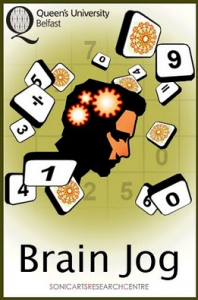 Researcher at Queen’s college worked closely with adults over 50 to develop four puzzles in a brain training app designed to improve brain health.
Researcher at Queen’s college worked closely with adults over 50 to develop four puzzles in a brain training app designed to improve brain health.
“Brain Jog is unique among similar apps in that it has come to fruition after extensive research and collaboration with the target audience to find out exactly what appeals to them. “By downloading this app, you can help us create a fantastic game experience for those over 50 and bring us one step closer to finding out whether or not brain training can help prevent cognitive decline and dementia.”
You can play Brain Jog on the iPhone, iPad or iPod. The four puzzles test and build cognition in spatial reasoning, working memory, arithmetic and verbal ability.
This is a good opportunity to get some free brain training and help shape the next version of the product.
Categories: Cognitive Decline, Software Tags: games, smart phone
Training for a High-Performing Emotional Brain
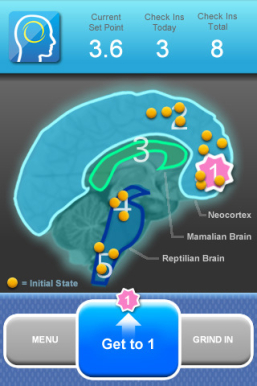 Emotions play a key and often dominate role in our brain function and cognitive performance. We create emotions anytime we appraise or make judgments on people, events, ideas or other things. Our ability to spot, understand and manage emotions in ourselves and others correlates more strongly to life success than IQ. So-called emotional intelligence is a cornerstone for high performance learning, decision-making, creativity, collaboration and other mental and social processes. So I am also on the lookout for new science-based techniques for training my emotional brain.
Emotions play a key and often dominate role in our brain function and cognitive performance. We create emotions anytime we appraise or make judgments on people, events, ideas or other things. Our ability to spot, understand and manage emotions in ourselves and others correlates more strongly to life success than IQ. So-called emotional intelligence is a cornerstone for high performance learning, decision-making, creativity, collaboration and other mental and social processes. So I am also on the lookout for new science-based techniques for training my emotional brain.
For example, take the work on Emotional Brain Training or EBT. It provides a simple way to assess which of five core brain states you are in and then suggests a tool for achieving self-regulation . The five brain states and associated tools are related to your level of stress and include:
- Balanced/reward (joy) state use the Sanctuary tool
- Balanced state use the Feelings check tool
- Verge of stress (mixed) state use the Emotional Housecleaning tool
- Stressed (unbalanced) state use the Cycle tool
- Full blown stress (underwhelmed) state use the Damage control tool
To get started right away you can download the Emotional Brain Training iPhone app (shown above) or find the equivalent in the Droid market.
 If you want to understand more of the theory behind how it works check out the new book, Wired for Joy. Or consider some of the training and coaching offerings from the Institute for Health Solutions.
If you want to understand more of the theory behind how it works check out the new book, Wired for Joy. Or consider some of the training and coaching offerings from the Institute for Health Solutions.
I am just learning to use EBT and am interested to hear from readers that have some experience with one or more of the five tools.
Categories: IQ and EQ, Lifestyle, Manage Emotions, Software, Training Tags: emotion, EQ, smart phone
Integrated Brain Training Over the Web
MyBrainSolutions offers a software-based brain training program over the web. There are also some apps for your smart phone. You can sign up for the basic membership for free or pay $9.95/month for the premium service. With the premium service you complete a brain assessment and get training recommendations based on your specific needs. You also get access to more training exercises. The basic membership gives you four. With both memberships you get a personal dashboard (web page) that provides access to your tools and results.
The program appears unique in its emphasis on emotions, thinking, feelings and self-regulation and how they work together in an integrated way. You can watch a five minute video on the site that explains it. The emphasis on automatic processing of emotional queues (mainly facial expressions) and how that shapes our intuitions and decision-making, is right on. I have not seen any other brain training program tackle that.
I am using the basic membership and like what I see. Interested to hear from readers that have purchased the premium membership. Is it worth $10 per month? Thanks.
Categories: Executive Function, Manage Emotions, Memory and Learning, Software Tags: brain training, EQ, smart phone
Boost Happiness by 25% with Simple Gratitudes
 By consciously cultivating a sense of gratitude you can improve happiness by 25%. While this does not raise your IQ it definitely raises you emotional quotient or EQ by developing skills in recognizing and managing emotions.
By consciously cultivating a sense of gratitude you can improve happiness by 25%. While this does not raise your IQ it definitely raises you emotional quotient or EQ by developing skills in recognizing and managing emotions.
But how do you cultivate gratitude? For some excellent practical tips check out Enhance Happiness and Health by Cultivating Gratitude: Interview with Robert Emmons. Some examples:
“The most common method we use in our research is to ask people to keep a “Gratitude Journal” where you write something you feel grateful for. Doing so 4 times a week, for as little as 3 weeks, is often enough to create a meaningful difference in one’s level of happiness. Another exercise is to write a “Gratitude Letter” to a person who has exerted a positive influence on one’s life but whom we have not properly thanked in the past, and then to meet that person and read the letter to them face to face.”
I am interested to hear from readers that use specific techniques for building EQ through practicing gratitudes.
Categories: IQ and EQ, Lifestyle, Manage Emotions Tags: EQ, experiential learning, smart phone
Smart Phone Apps for Boosting Your Brain
A reader suggested Brain Boost, a new iPhone app.
.
Like to hear from readers that use this or other apps designed to improve cognitive performance.
Categories: Manage Emotions, Mental Focus, Software Tags: brain training, cognitive fitness, smart phone


